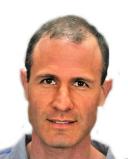Memory
7,000 Simple Steps to a Better Memory: Take a Walk
Walking can help memory, and can have many other health benefits
Posted January 9, 2014
People want to know how they can improve their memory. Computer-based “brain-training?” Doing crossword puzzles? Eating blueberries? The one method that has strong evidence-based support is simple: walking. Really, the answer is cardiovascular exercise, and walking fits the bill. So, if you are thinking of a New Year’s resolution, just lace up your walking shoes!

When people hear walking can improve memory, and leads to volumetric changes in the brain, they are often surprised. If the brain is like a muscle, then shouldn’t brain exercises help? How can walking lead to changes in the brain? The simple answer is blood flow. Cardiovascular exercise leads to greater blood flow to the brain, bringing oxygen and nutrients. A recent study showed that older people who walked 40 minutes a day, 3 times a week, showed a 2% INCREASE in the volume of the hippocampus, one of the main brain structure involved in memory one year later. Typically, the hippocampus’ volume DECLINES by about 1% every year after the age of 50. So, an increase of 2% is a big deal, as it might suggest walking can “reverse” the typical age-related decline in brain volume.
For most people, walking is easy to do, and you don’t need to be an athlete. That is also one reason is attracts research interest—you can randomly assign people to a walking group (or a stretching group, which does not lead to the same benefits as walking), but perhaps not to an extreme biking, or marathon running, regiment! So, walking helps, as does any other cardiovascular form of exercise.
Also, walking can have a social component, if you walk with a partner or group, or even a pet. Having someone to walk with can lead to greater motivation to walk, and talking while walking can lead to enhanced mental health, social support and friendship.

There has been a lot of recent attention about how getting 10,000 steps a day can have wonderful benefits (though this number may be just a marketing trick) as there doesn't seem to be anything special about that number--so you don’t need to start with this large number of steps (which is about 5 miles). More recent research shows around 4,000-7,000 steps leads to major benefits. Ideally, a goal of getting 7,000 steps seemed to be a good goal, but as little as 4,000 lead to benefits. Barring any disability, there are relatively few barriers to walking, even bad weather. In fact, mall-walking is a popular early morning activity for many people who live in cold weather climates.
There are lots of ways to get in a few more steps each day, and having a pet to walk might motivate you. Buy a pedometer, and measure and monitoring how many steps you take a day. Then, walk to work. Or walk at work, with help of the latest in multi-tasking technology: a treadmill desk.
Walking has many benefits beside brain function, as recent research suggests just 2000 steps a day can ward off diabetes, and breast cancer in women. Even people who are at risk for diabetes can cut their risk for heart-related events like a heart attack or stroke.
So, how can you train your brain? Computer-based brain training can have some benefits, but leads to more screen time, and perhaps a more sedentary life. While there can be benefits to playing these brain games, it is often difficult to find that these benefits transfer, or improve, other functions, such as being able to remember where you put your keys, or the name of the doctor you just met. Just the opposite of computer-based brain training, walking gets you away from your computer (but perhaps not your smart phone!).
The bottom line is that walking, one of the most primitive forms of movement and exercise, can improve your body and your mind, and may help you remember where you put your keys. So, the best way to find the fountain of youth may be walking there ( just start by taking those 4,000-7,000 simple steps!), and that will help you stay both physically fit and mentally sharp.


